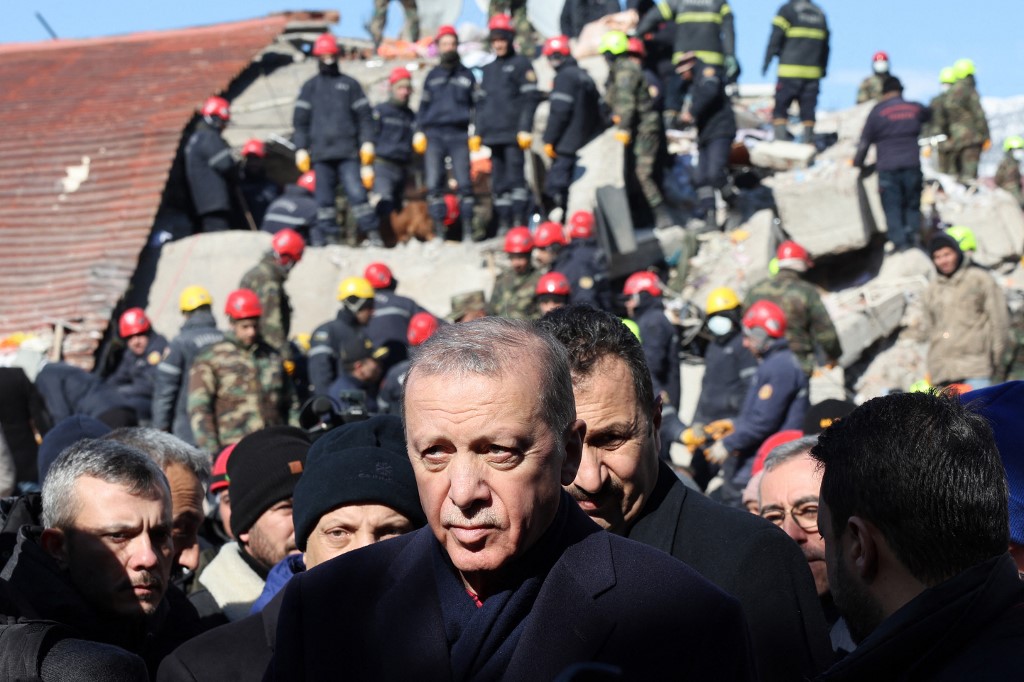Ali Dinçer*
The keyword is “efficiency.” Whether we are talking about a highly individualized one-man rule or a relatively institutional one-party state, the strongest selling point of any autocratic regime is the promise of smooth sailing in economy, foreign policy and crisis management.
It was the emphasis in China’s propaganda in the early days of Covid-19, with Beijing boasting about its construction of new hospitals at warp speed while the “dysfunctional Western democracies” were still scratching their heads and trying to figure out what was going on.
We would also be hard pressed to dispute the pivotal role played by Vladimir Putin’s charismatic and centralized leadership in putting Russia back on the map as a geopolitical powerhouse after the utter humiliation of the ’90s.
Efficiency was also the central theme of President Recep Tayyip Erdoğan’s years-long pitch of the presidential system to the Turkish public, which culminated in a constitutional referendum in 2017.
“Turkey has always regressed in times of coalition rule,” he said in a TV interview in 2015, presumably alluding to the circumstances that led to his first election victory back in 2002, when his party had taken over following an entire decade of corruption, incompetence and economic mismanagement under successive coalition governments.
The constitutional amendments of 2017 not only abolished the prime ministry and subordinated the cabinet to the presidency, they also heavily curtailed the legislative power of the parliament, investing the president with the power to issue “decrees” on virtually anything. And I mean anything. Just a few weeks ago, Erdoğan’s office released a decree that ordered the postponement of a metalworkers strike at a factory on the grounds that it was deemed “disruptive of national security.” If that’s not efficient, I don’t know what is.
There is an undeniable appeal to the idea of a centralized and powerful government running things smoothly. Authoritarianism makes a lot of sense on paper: No counterproductive bickering among coalition partners, no need for time-consuming technical consultations, no parliamentary procedures dragging things on and on…
Yet authoritarianism also has a pitfall that often comes into view later on, sort of like a plot twist. The tacit assumption that the man at the top would always hold the public’s well-being and the country’s best interests above everything else and that he would allow no other consideration to muddy his motives is, to put it mildly, naïve.
Last year, the Chinese government ended up imposing a monthslong, paralyzing lockdown on Shanghai, the country’s financial heart, suffocating its residents and crippling its economy just because the Communist Party wouldn’t admit that its so-called “zero-Covid policy” was not feasible and that the Chinese-made vaccines weren’t as effective as Western ones. By then, democracies had backed away from much more ill-advised ideas such as herd immunity and fine-tuned their mitigation strategies countless times based on new scientific information as well as pressure from public opinion. Western governments also didn’t hesitate to immediately drop vaccines that turned out to be less effective or have side effects.
And I guess I don’t even need to explain where Putin’s unflinching brinksmanship on foreign policy has led Russia to.
Flexibility is the invisible superpower of democracies, thanks to which they are able to recognize their mistakes, adjust their strategies on the fly and adapt to new circumstances. Democratic leaderships have the luxury to say “oops,” and if their blunder happens to be too great for forgiveness, the worst thing that happens to them is often an early retirement.
Autocrats may have the authority and power to do a lot of things, but admitting their mistakes and shortcomings isn’t one of them. They have no retirement plans because they know what awaits them at the end of the line. Whereas a democratic leader gets voted out in shame, an autocrat gets a firing squad. That’s why nothing ever takes precedence over their self-interests on their list of concerns, not even the plight of tens of thousands of people buried beneath the debris of a devastating earthquake.
Obviously, Turkey’s deadly earthquake of February 6 isn’t by itself Erdoğan’s fault. It’s a once-in-a-century disaster that would unleash widespread destruction no matter where it hit on the map. Yet his government has made it very clear that its top priority is not crisis management but rather preserving its image, as evidenced by the bureaucratic hurdles erected against all nongovernmental disaster relief efforts as well as the unbelievably cruel restriction imposed on Twitter, the platform where thousands of surviving earthquake victims made their voices heard from underneath the rubble.
Erdoğan’s furious statements, full of threats and vitriol against critics and devoid of any semblance of compassion or genuine expression of sorrow at a time of unprecedented human tragedy, have epitomized the ultimate cost of the devil’s bargain that is authoritarianism. My fellow Turks have unfortunately indulged in it, and we’ve all suffered because of that, one way or another, over and over again. My only hope is that there are people around the world who can learn from our mistake.
*Ali Dinçer lives in Belgium and previously worked for the Turkish Ministry of Foreign Affairs.

